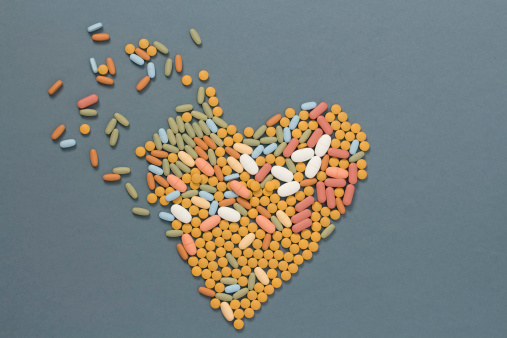 It’s fairly well known that undergoing cancer treatment isn’t easy on your body. Most people who endure chemotherapy or radiation struggle through the treatment and recovery processes, as they are severely weakened, often unable to do little more than rest.
It’s fairly well known that undergoing cancer treatment isn’t easy on your body. Most people who endure chemotherapy or radiation struggle through the treatment and recovery processes, as they are severely weakened, often unable to do little more than rest.
These treatments can take a lot out of you, both physically and mentally. And yes, they have the ability to kill cancer cells and put cancer into remission and potentially make you cancer-free. But is this intense treatment sacrificing your overall health?
A concern that’s rather common when it comes to chemo and radiation therapies is how they affect the heart. It’s a lot for the heart to take, and in some cases, it can put patients at risk. There are certain chemotherapy drugs that might increase the risk of heart disease, weaken the heart muscle (cardiomyopathy), lead to disturbances in heartbeat (arrhythmia), and possibly increase your risk of a heart attack or hypertension.
If you have a weak heart or have had heart problems in the past, undergoing chemotherapy or radiation therapy can be dangerous—you need to know this: it’s extremely important to take good care of your heart and be completely up front and honest with your doctor about how you feel and any complications you might fear. Based on this information, they can make the best decision on how to treat you.
Chemo and radiation therapies are part of an ever-growing body of cancer treatments; they often may be necessary in order to defeat cancer and lengthen your life. But you still should be well aware of the possible side effects of certain drugs, like anthracyclines (e.g., doxorubicin, daunorubicin), both during and after treatment. These drugs may cause damage to the heart if they are taken in high volumes for an extended period of time. Drugs called taxanes can cause arrhythmia when they are given, so if you experience a shortness of breath or feel your heart beating strangely, promptly inform your doctor.
A lot of people don’t like to go to doctors or get treatments like this if they believe there are natural treatment techniques. In my opinion, chemotherapy and radiation therapy are not desirable, but at a certain point, they are certainly required. There surely are situations where modern Western medicine is the best option. However, I believe strongly that in most cases, the lifestyle choices you make now (and those you’ve made in the past) determine where you’ll end up.
To keep your heart as healthy as possible and limit your chances of being diagnosed with cancer that might require chemotherapy or radiation treatment, start living a life that promotes health and longevity. Eating a balanced diet rich in nutrients and fiber, getting exercise at least three to five times a week for an hour or so, limiting alcohol, and quitting smoking are all ways to relieve your heart of stress and promote overall health to help prevent cancer.
Source for Today’s Article:
Moynihan, T., “Can chemotherapy side effects increase the risk of heart disease?” Mayo Clinic web site, October 23, 2012; http://www.mayoclinic.org/diseases-conditions/cancer/expert-answers/chemotherapy-side-effects/faq-20058319, last accessed August 12, 2014.
